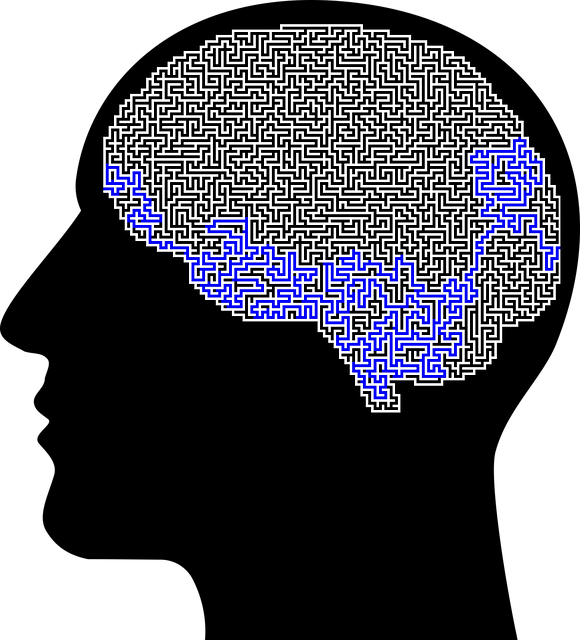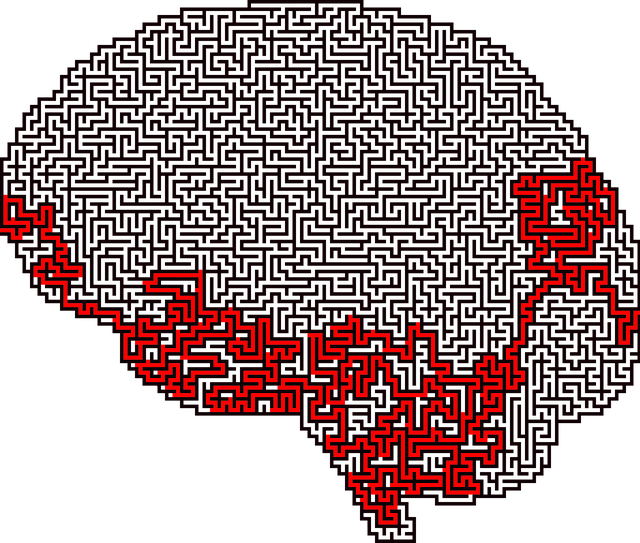Greenwood Village Cognitive Processing Therapy (GVCPT) enhances Emotional Intelligence (EQ) by addressing the mind-body connection and cognitive processing. It teaches individuals to recognize and manage emotions, empathize with others, and navigate emotional landscapes through challenging negative thoughts and adopting adaptive ones. GVCPT incorporates trauma support, aiming to improve clients' relationships and well-being. This therapy empowers people to identify emotions accurately, express them healthily, build empathy, and regulate them effectively, ultimately boosting confidence and social navigation in both personal and professional settings.
Emotional intelligence (EQ) is a vital skill set that enables individuals to navigate complex social landscapes, foster meaningful connections, and lead fulfilling lives. This article explores strategies for building EQ through the lens of the Greenwood Village Cognitive Processing Approach. We delve into identifying and recognizing emotions, enhancing self-awareness, developing empathy, and managing emotional responses, drawing on the expertise of Greenwood Village Cognitive Processing Therapy.
- Understanding Emotional Intelligence: The Greenwood Village Cognitive Processing Approach
- Identifying and Recognizing Emotions: A Key Step in Building EQ
- Enhancing Self-Awareness: Unlocking the Power of Inner Reflection
- Developing Empathy: Walking in Another's Shoes for Better Connections
- Managing and Regulating Emotions: Strategies for Effective Emotional Intelligence
Understanding Emotional Intelligence: The Greenwood Village Cognitive Processing Approach

Emotional intelligence (EQ) is a multifaceted concept that involves recognizing, understanding, and managing one’s own emotions, as well as empathizing with others’ feelings. The Greenwood Village Cognitive Processing Therapy (GVCPT) offers a unique approach to enhancing EQ, focusing on the intricate relationship between thoughts, feelings, and behaviors. This therapy emphasizes the power of cognitive processing, which is the process by which our brains interpret and assign meaning to experiences. By understanding how these cognitive processes shape our emotions and behaviors, individuals can gain valuable insights into themselves and improve their interactions with others.
The GVCPT incorporates Mind Over Matter principles, teaching clients to challenge negative thought patterns and replace them with more adaptive ones. This process is crucial for stress reduction methods, as it helps individuals manage their emotional responses to stressful situations. Moreover, the therapy provides trauma support services, acknowledging that past traumatic experiences can significantly impact an individual’s ability to regulate emotions. Through these comprehensive strategies, GVCPT empowers clients to navigate their emotional landscape more effectively, fostering better relationships and enhancing overall well-being.
Identifying and Recognizing Emotions: A Key Step in Building EQ

Identifying and recognizing emotions is a fundamental step in cultivating emotional intelligence (EQ). This process begins with awareness—becoming attuned to your own feelings and those around you. Greenwood Village Cognitive Processing Therapy offers powerful tools for navigating this aspect of EQ development. By learning to recognize both subtle and overt emotional cues, individuals can enhance their understanding not only of their own internal states but also of the complex emotional landscapes of others.
This heightened awareness fosters better communication and deeper connections in personal and professional relationships. Moreover, it serves as a cornerstone for effective stress management workshops, resilience building, and even risk assessment for mental health professionals. When individuals can accurately identify and express their emotions, they are better equipped to handle challenging situations, build healthy boundaries, and contribute to a positive organizational culture.
Enhancing Self-Awareness: Unlocking the Power of Inner Reflection

Enhancing self-awareness is a cornerstone of emotional intelligence building. Greenwood Village Cognitive Processing Therapy offers powerful tools to unlock this potential by encouraging individuals to delve into their inner world. Through introspective exercises, one can gain profound insights into their thoughts, emotions, and behaviors, fostering a deeper understanding of themselves. This self-reflection is pivotal in identifying personal strengths and weaknesses, enabling individuals to make conscious decisions that align with their values and goals.
In the context of social skills training, mindfulness meditation plays a significant role in enhancing self-awareness. By cultivating present-moment awareness, individuals can better recognize and manage their emotional responses during interactions with others. This skill is crucial for improving communication, building stronger relationships, and navigating complex social situations, ultimately contributing to increased confidence and overall well-being. Public awareness campaigns focused on mental health development further support this journey by promoting the importance of self-care and encouraging open conversations about emotional intelligence.
Developing Empathy: Walking in Another's Shoes for Better Connections

Developing empathy is a cornerstone of emotional intelligence building, enabling individuals to foster deeper connections with others. This involves actively putting yourself in someone else’s shoes, understanding their feelings and perspectives, and responding thoughtfully. In Greenwood Village Cognitive Processing Therapy, therapists guide clients through this process by encouraging them to explore different viewpoints, fostering a heightened sense of social awareness. By practicing empathy, one can improve their social skills training, enhancing interactions not just with friends and family but also in professional settings.
This ability is further enriched by incorporating cultural sensitivity in mental healthcare practice, recognizing that everyone brings unique experiences and backgrounds to any interaction. Mental health awareness benefits significantly from this perspective as it promotes inclusivity and tailored support. Whether through casual conversations or structured therapy sessions, developing empathy allows individuals to navigate complex social dynamics, fostering genuine relationships that transcend superficial interactions.
Managing and Regulating Emotions: Strategies for Effective Emotional Intelligence

Managing and regulating emotions is a cornerstone of emotional intelligence development. Individuals who excel in this area understand their feelings and can control how they express them. This involves recognizing when emotions arise, identifying what triggers them, and responding adaptively rather than reactively. Greenwood Village Cognitive Processing Therapy (GPCT) offers valuable tools for navigating these processes. Through GPCT, individuals learn to challenge negative thought patterns that contribute to intense emotional responses.
Empathy building strategies play a significant role in emotional intelligence. Mentally focusing on understanding others’ perspectives and feelings fosters deeper connections and strengthens interpersonal skills. This aspect is crucial not only for personal relationships but also for professional interactions, especially within the context of mental wellness podcast series production. By integrating these strategies into daily life, individuals can enhance their ability to assess risk appropriately in various situations, as highlighted in risk assessments for mental health professionals.
Emotional intelligence is a powerful tool for personal growth and successful relationships. By employing techniques like those offered by the Greenwood Village Cognitive Processing Therapy, individuals can significantly enhance their EQ. Understanding emotions, cultivating self-awareness, developing empathy, and managing feelings effectively are integral steps in this journey. These skills not only improve mental well-being but also foster stronger connections with others, making emotional intelligence a valuable asset in both personal and professional spheres.














